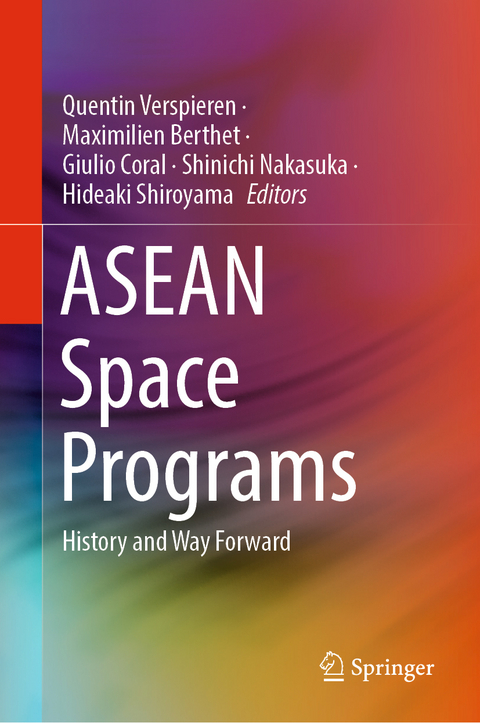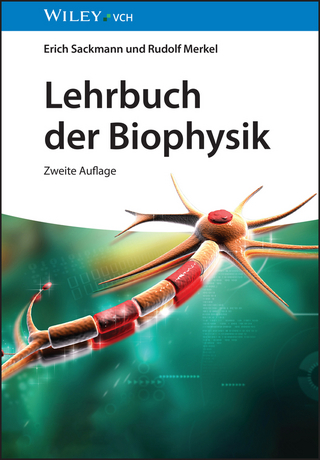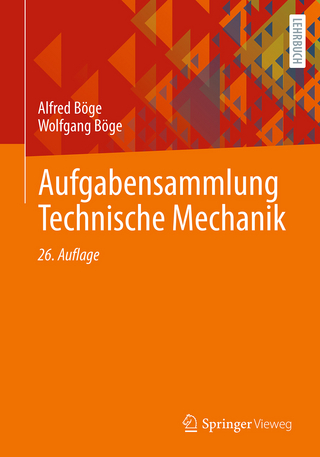
ASEAN Space Programs
Springer Verlag, Singapore
978-981-16-7325-2 (ISBN)
Quentin Verspieren is Assistant Professor at the Science, Technology, and Innovation Governance (STIG) program of the University of Tokyo’s Graduate School of Public Policy and Associate Research Fellow at the European Space Policy Institute (ESPI). His research primarily focuses on space policymaking and technology development in developing countries and on international regime-making for space security, safety and sustainability. In addition, he serves as General Manager for Global Strategy at ArkEdge Space Inc., a micro/nano-satellite manufacturing start-up company in Tokyo, Japan. Dr. Verspieren has two master’s degrees in aerospace engineering (ISAE-SUPAERO and the University of Tokyo) and a Ph.D. in public policy (the University of Tokyo). Maximilien Berthet is Ph.D. Researcher in the Department of Aeronautics and Astronautics of the University of Tokyo. His research focuses on the utilization of natural perturbations in the space environment for easier space science and navigation. In parallel with his technical research, Mr. Berthet is leading a space capacity building collaboration between the University of Tokyo and the Institute of Technology of Cambodia. He holds a master’s degree in Aeronautics from the University of Durham and a master’s degree in Aeronautics and Astronautics from the University of Tokyo. Giulio Coral received his Ph.D. and M.Eng. degrees from the Department of Aeronautics and Astronautics of the University of Tokyo and his B.Sc. from the University of Padua. His research interests include various topics in electric and chemical propulsion technology, among which the plasma dynamics of the μ10 ion thruster is used in the Hayabusa missions, as well as novel hybrid electrochemical thrusters. Together with his engineering research, he has been involved in the study of space policy in Southeast Asia. He is currently working as Space Propulsion Engineer at ThrustMe (France). Shinichi Nakasuka graduated from the University of Tokyo in 1983 and obtained a Ph.D. in aeronautics and astronautics in 1988. He worked at IBM Research from 1988 to 1990 and then returned to the University of Tokyo’s Department of Aeronautics and Astronautics, as Lecturer in 1990, before becoming Associate Professor, and then Professor in 2004. He is Member of the Japan Society for Aeronautical and Space Sciences (JSASS), the Society of Instrument and Control Engineers (SICE) and the International Academy of Astronautics (IAA), Former Chairperson of the Aerospace Technical Committee of the International Federation of Automatic Control (IFAC), and current President of the international NPO University Space Engineering Consortium (UNISEC-Global). His main research areas include micro/nano/pico-satellites, autonomy, and intelligence for space systems, novel space systems, and guidance, navigation, and control of spacecraft. He successfully developed and launched 13 micro/nano/pico-satellites, including the world’s first CubeSat. He is also Member of National Space Policy Committee of the Government of Japan. Hideaki Shiroyama is Professor of public administration at the Graduate School of Public Policy and the Graduate Schools for Law and Politics and also Director of the Institute for Future Initiatives, the University of Tokyo. He is Former Dean of the Graduate School of Public Policy from 2014 to 2016 and Former Director of the Policy Alternatives Research Institute at the University of Tokyo, from 2010 to 2014. Prof. Shiroyama’s research focuses on international administration, science/technology and public policy, and public policy process. He has published several works with international publishers.
Why Space matters in ASEAN.- Indonesian space policy, regulations and programs: past achievements and future prospects.- Space Sector Development in Malaysia.- The Philippine Space Program: A Modern Take on Establishing a National Space Program.- Singapore, a sustained ambition towards a commercial space sector.- Vietnam: An Ambitious Satellite Development Program.- Comparison of established ASEAN space programs and lessons learned.- Other ASEAN countries: space achievements so far.- Concrete recommendations for space development in non-spacefaring countries.- Connecting Space with Citizens of ASEAN: A Social and Policy Ecosystem for Sustainable Space Development.- The role of the United Nations for space applications development and utilization in ASEAN.
| Erscheinungsdatum | 03.02.2022 |
|---|---|
| Zusatzinfo | 12 Illustrations, color; 4 Illustrations, black and white; XXIII, 208 p. 16 illus., 12 illus. in color. |
| Verlagsort | Singapore |
| Sprache | englisch |
| Maße | 155 x 235 mm |
| Themenwelt | Naturwissenschaften ► Physik / Astronomie ► Angewandte Physik |
| Recht / Steuern ► EU / Internationales Recht | |
| Technik ► Fahrzeugbau / Schiffbau | |
| Technik ► Luft- / Raumfahrttechnik | |
| Schlagworte | ASEAN space sector • Regional Cooperation in Space • South East Asian Space Program • Space development program • space policy • Space programs in developing countries • Technical recommendations for space development |
| ISBN-10 | 981-16-7325-X / 981167325X |
| ISBN-13 | 978-981-16-7325-2 / 9789811673252 |
| Zustand | Neuware |
| Haben Sie eine Frage zum Produkt? |
aus dem Bereich


